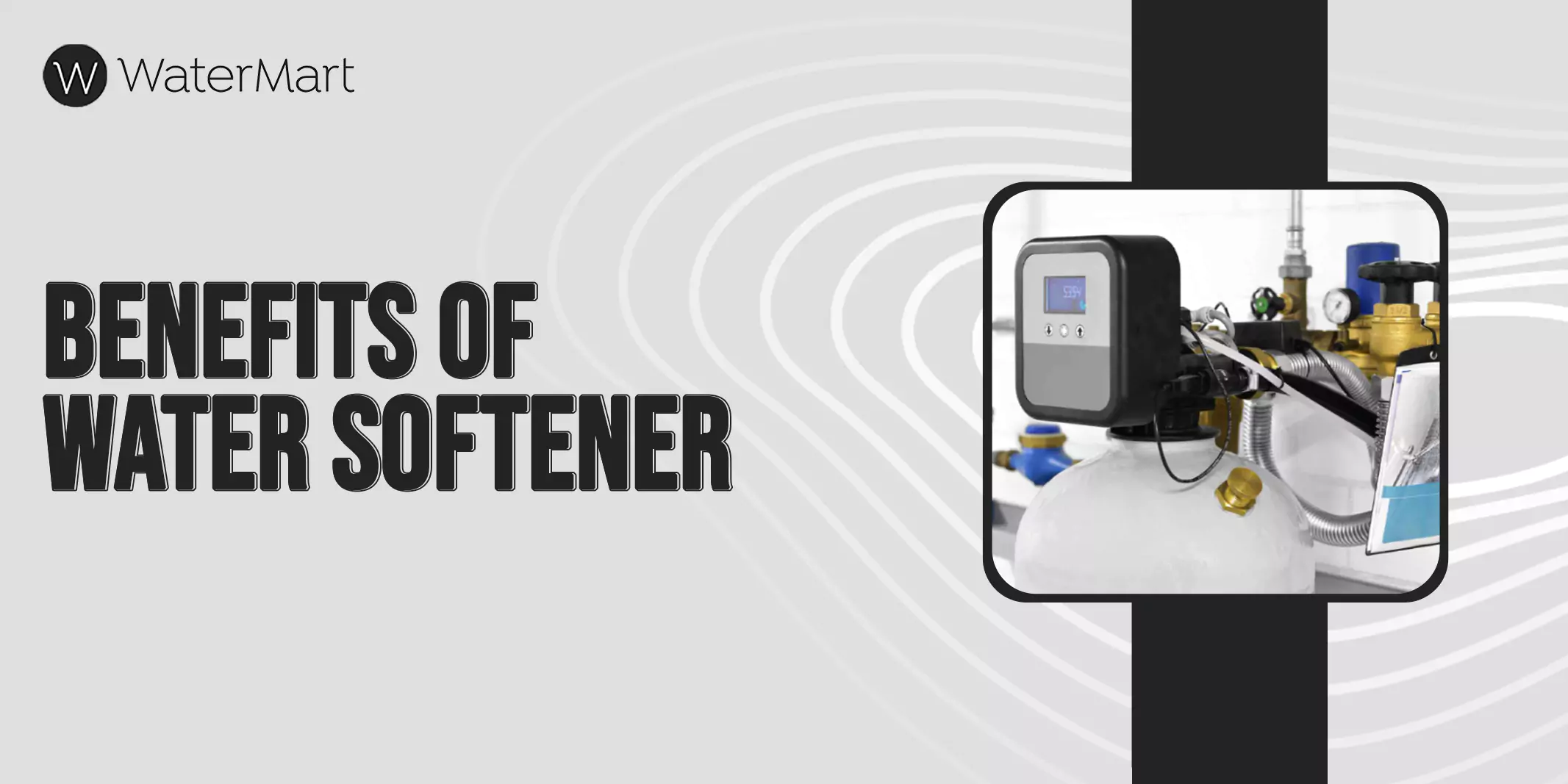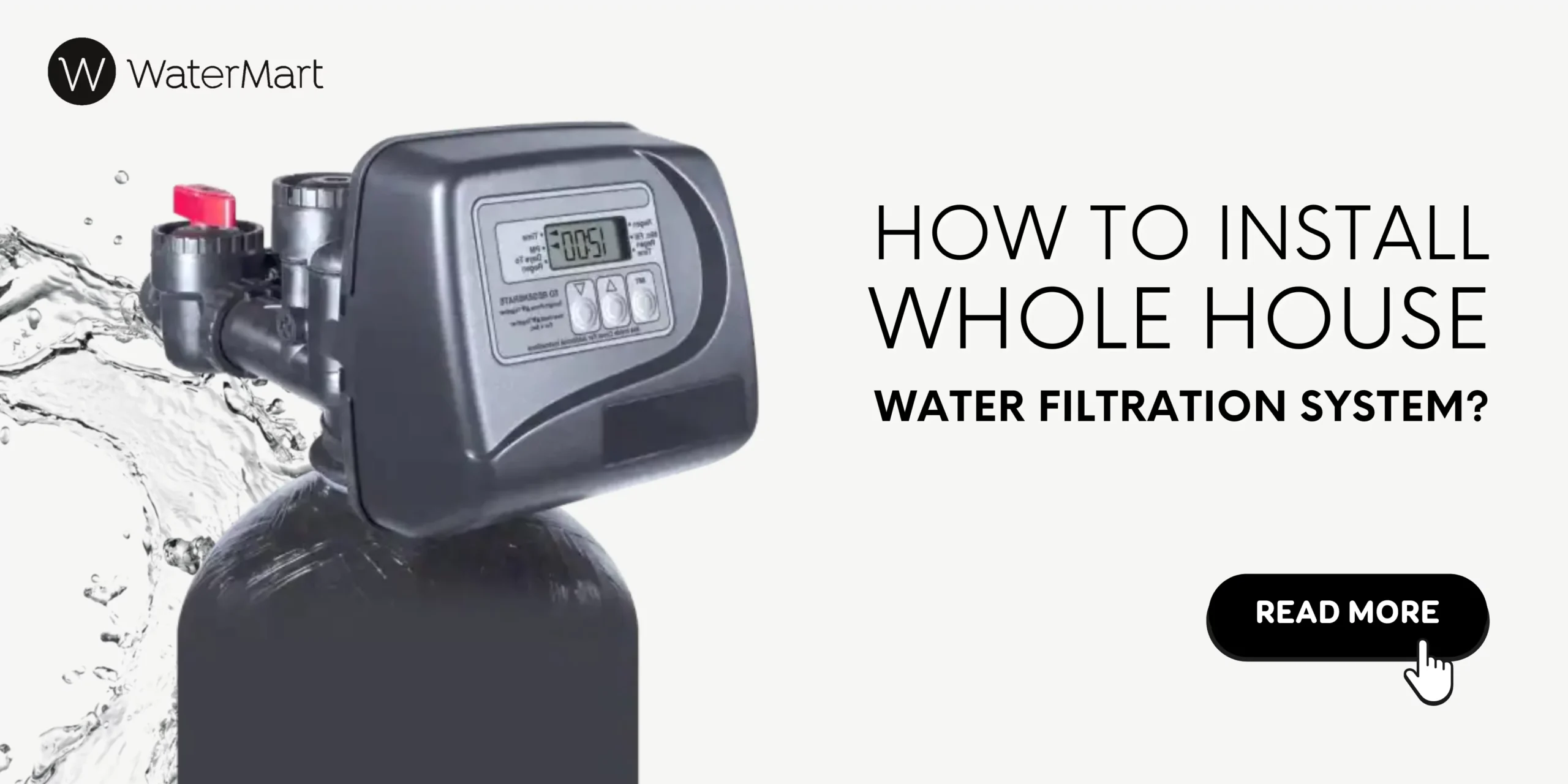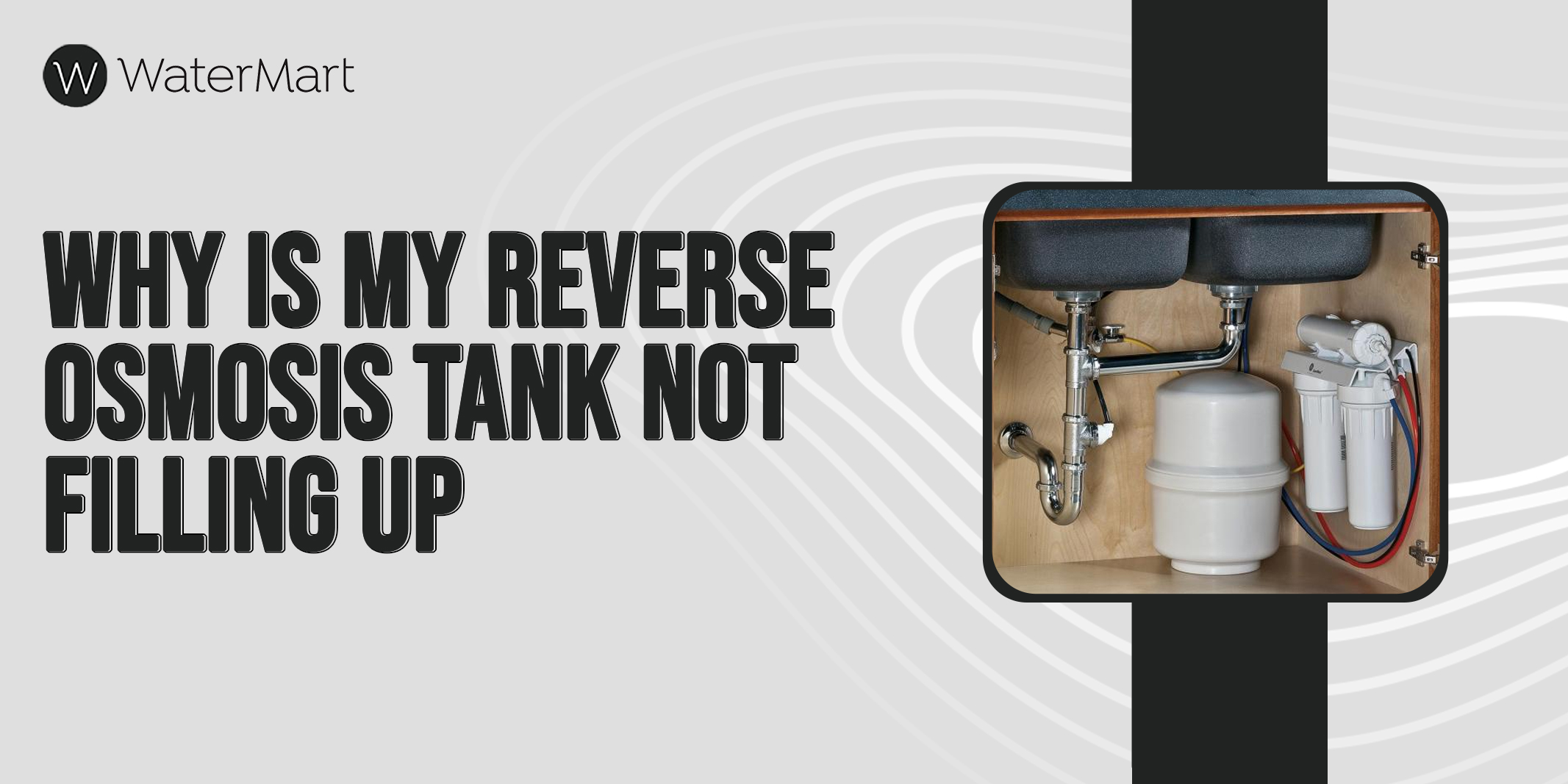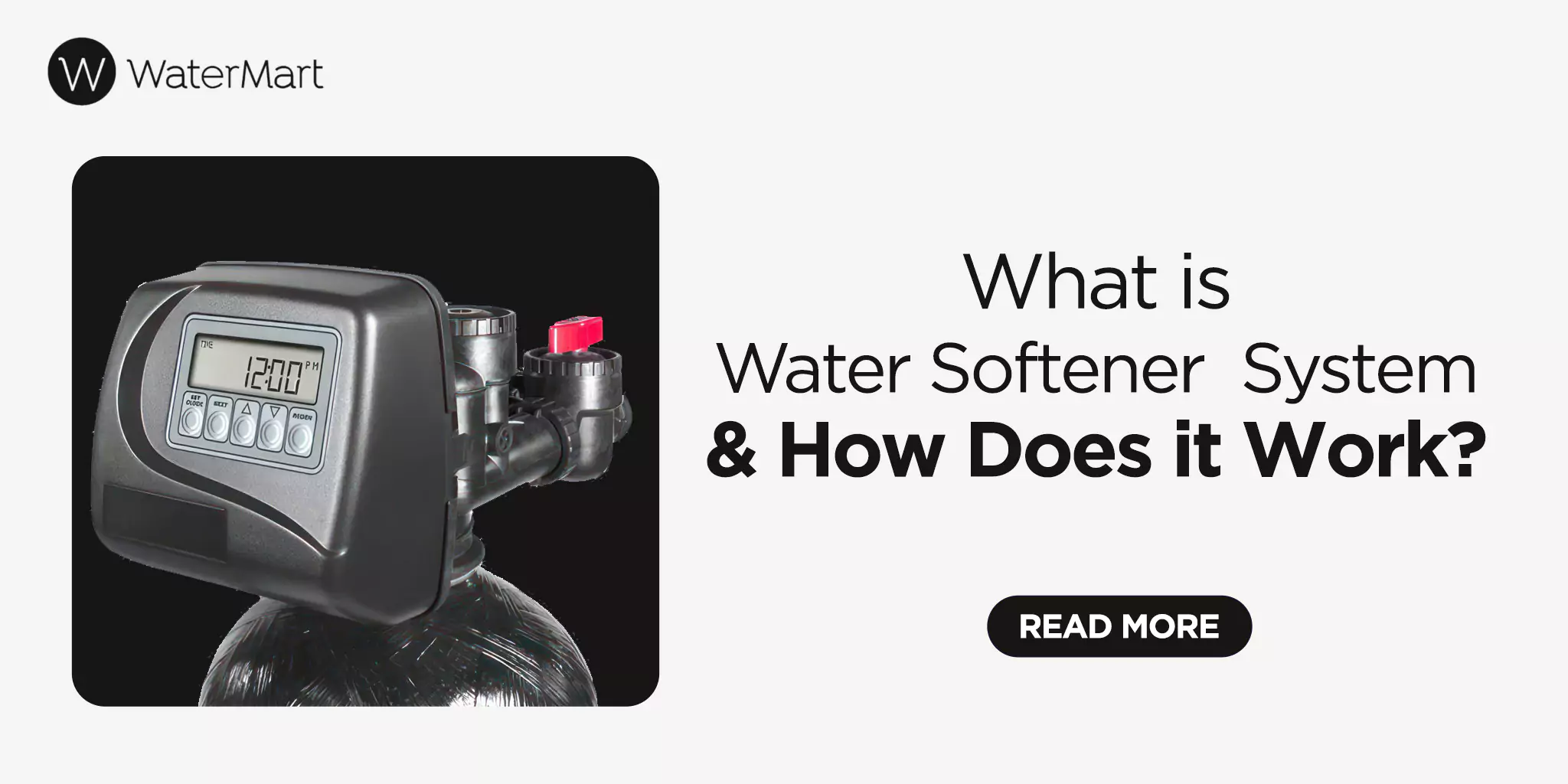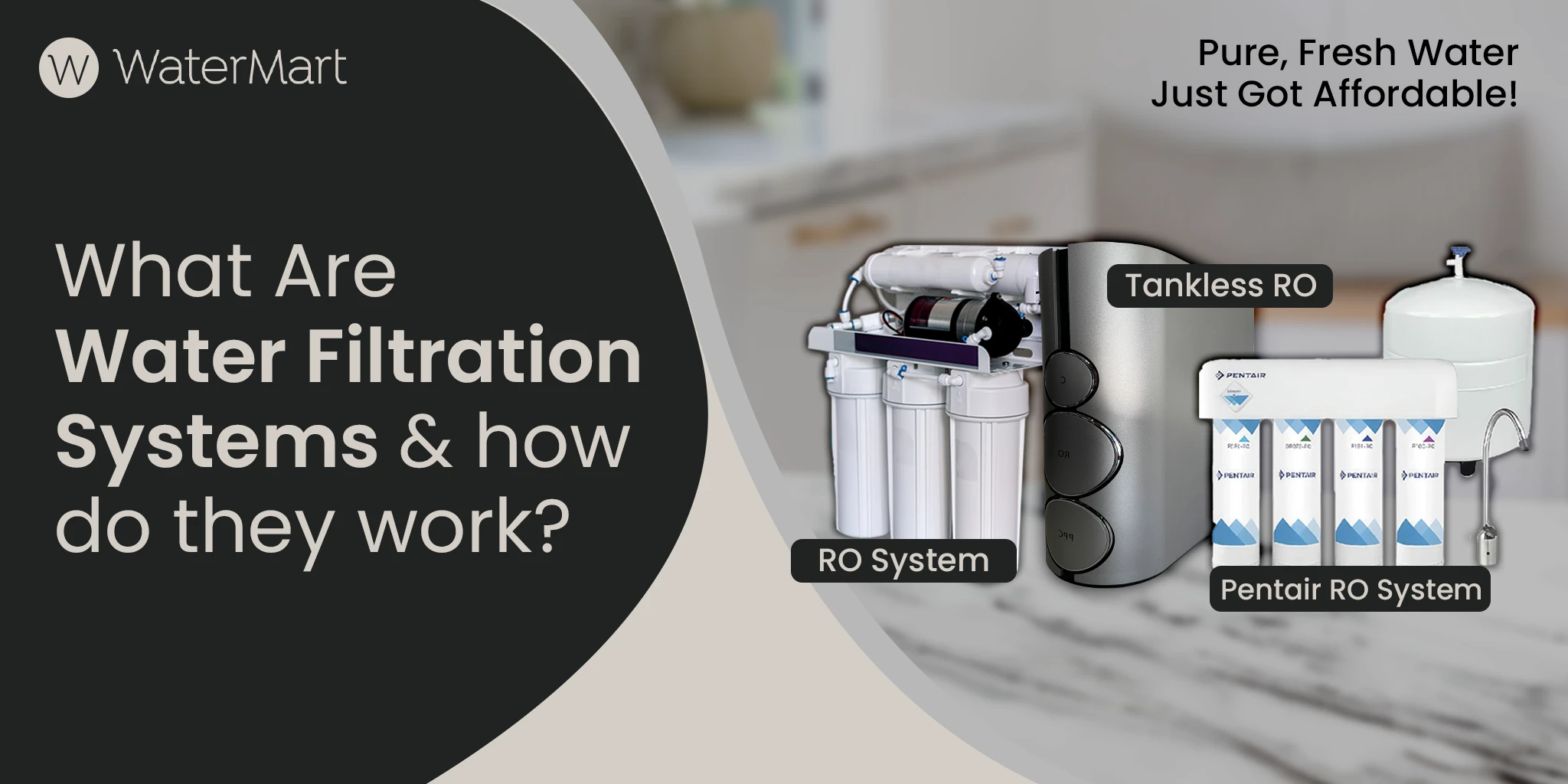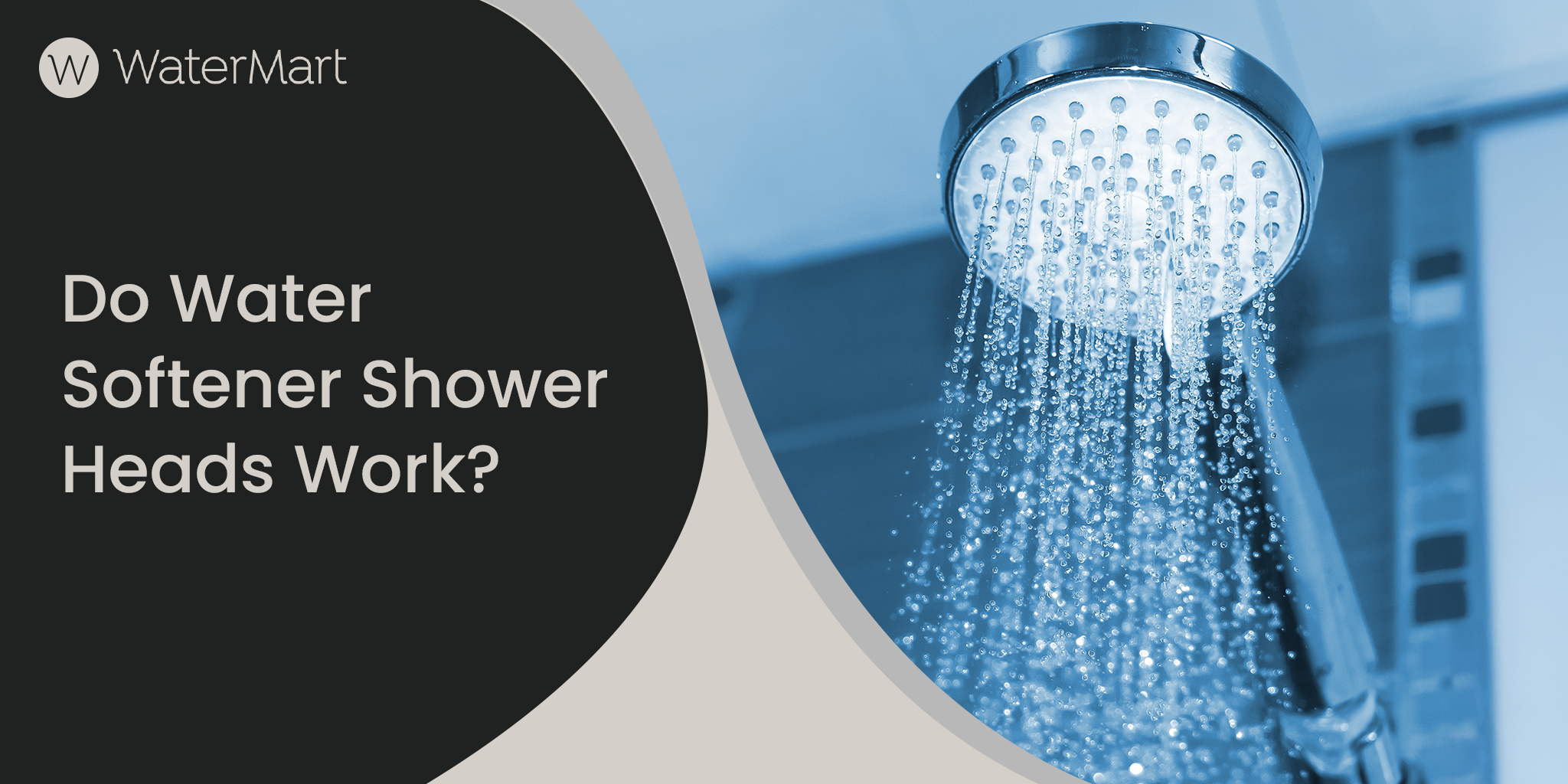Your cart is currently empty!
Benefits of a Water Softener System | A Secret To Your Health and Wealth
Hard water can cause health issues, discoloration of dishes, faucets and limescale build-ups in electric water heaters. There are many benefits of Water Softener Systems such as improvement in water quality, getting rid of dry skin, improved hair, removal of scale build-ups around faucets and showerheads, and so on.
By filtering hard contaminants like calcium and magnesium, a water softener system cleans hard water. It keeps your pipes clear and your appliances running smoothly. If you are planning to get a water softener system installed at your place, consider the following aspects, requirements, and pros and cons of the system.
What Is Water Softener And Why Do You Need It?
For those who are new to water softeners, here is a brief introduction to a water softener, its working, and its requirements.
A water softener is a system that cleans out minerals through an ion exchange method. A typical water softener system is made up of several important components that work together to remove hardness from water. These include the resin tank, control valve, brine tank, distributor tube, and resin beads, each playing a key role in the softening process. Understanding these parts of a water softener helps homeowners choose the right system and maintain it properly. The Ion exchange procedure takes place by replacing hard minerals (Ca2+ and Mg) with softer ones like Sodium or Potassium. This “softens” the water for your whole house and gets rid of the leading causes of water hardness.
Such soft minerals do not create problems like build ups or damaged appliances.
Many homeowners need this system to protect their plumbing, improve cleaning efficiency, and prevent dry skin and hair. Here are the benefits of a water softener system that can help you decide whether you need it or not.
Water Softener Benefits
Canadians use a water softener system to improve the quality of their water. For example, the water in Toronto has a moderately high hardness level of tap water. Here’s how a water softener system gives instant results:
Prevent Pipe Blockages
Frequent blockage in your plumbing systems can be caused by hard water. The buildup of minerals clogs pipes and to repair that, you need to get costly repairs that take hours to fix. This not only protects your plumbing but also allows useful items like dishwashers and washing machines to be more efficient and durable.
Increase Lifespan of Appliances
In addition to affecting plumbing, hard water causes buildup in your appliances. This buildup reduces the efficiency and lifespan of dishwashers, washing machines, and water heaters. For instance, water heaters using hard water can lose up to 48% of their efficiency. A water softener system prevents all sorts of buildup which helps appliances work better and last longer.
Soap And Detergent Effectiveness
Get more foam and clean more effectively with soap/detergents and soft water. To properly wash clothes with hard water, you need hot water and more soap to clean the same amount. Using a water softener means you don’t have to waste detergent or use warm water. A minor change like this can go a long way by saving energy, and costs and preventing fabric shrinkage.
Provides Spotless Dishes
One of the common signs of hard water is stains on cleaned dishes. You may notice a residue after cleaning and drying dishes due to this. Experience spotless cleaning of dishes with a water softener. Additionally, soft water mixes better with soaps and detergents without the need for hot water.
Better Skin and Hair Care Results
After showering, if your skin feels itchy, dry, and irritated, then it can be due to the buildup in the shower head. This can worsen skin issues like eczema and leave your hair color looking dull and hard to handle. Simply replacing the shower head will not help, use a water softener system instead. Soft water keeps skin moisturized and preserves natural oils while balancing hair pH for shinier, healthier-looking hair.
Save Energy Bills
Hard water forces appliances to use more energy which may be the cause of your higher utility bills. Using a water softener saves on cleaning products, makes appliances last longer, and reduces hot water use. This results in lower energy costs and savings as well as maintenance.
Keep Surfaces Clear
Keep your belongings looking spotless with the soft water system. The contaminants in hard water can cause marks and lines on glass, utensils, cars, and clothes. No need to search for vinegar mixtures to get rid of water spots. Just use the system.
Improved Investment Value
Water softener advantages also include added value to your home or rental space by eliminating hard water minerals that cause soap scum and residue. This means fewer water spots and cleaner surfaces for your property. No need to spend extra money on intensive cleaning, maintenance, and cleaning products.
Improved Investment Value
| Pros | Cons |
| Energy Savings | Maintenance |
| Healthier skin and hair | Environmental Impact |
| Easier & Better Cleaning | Increased sodium levels |
| Protects Appliances | Corrosion Risks over time |
| Protect pipes and improve water pressure | |
| Better tasting water | |
| No odor |
Water Softener System Vs Reverse Osmosis Water Filters
For the water filter system, the reverse osmosis water filtration is best. While reverse osmosis is highly effective for water filtration in kitchen sinks, it’s not for everyone. Due to its high water consumption, it can be wasteful.
Especially in cities of Canada like Toronto, where water quality is average. A water softener system is a better alternative but at WaterMart, we offer services for both options. Here are the Cons of Using Reverse Osmosis Water Filters:
Maintenance And Salt Refills
Reverse osmosis systems are expensive to set up and maintain. Even newer models that promise less waste still need regular maintenance, which is not worth the value for homeowners.
Removes Useful Minerals
As a water filter system, RO systems not only remove harmful contaminants but also take away all beneficial minerals like the required amount of calcium, magnesium, and potassium, along with fluoride. This makes the water more acidic, which can damage pipes and cause toxic metals like lead and copper to get into the water.
Requires Space For Installation
A Reverse Osmosis (RO) system can take up too much space. The exact space needed depends on the model you choose. Typically, a 3 or 4-stage system will measure around 14 inches in width, 7 inches in depth, and between 14 to 17 inches in height. It can be extra challenging due to the substantial under-sink space it requires.
Not Eco-friendly
Reverse osmosis (RO) systems are particularly inefficient, wasting three to twenty times more water than they produce. This harms the environment and increases water bills. Also, the reverse osmosis waste brine (leftover salty water) damages marine ecosystems, releases toxic chemicals, and exposes marine life to harmful levels of salt.
Changes in Water Taste
Water that has been filtered through reverse osmosis (RO) systems can taste bland because minerals like calcium and magnesium are removed. This loss of minerals can make drinks like coffee and tea taste worse.
Inefficiency of Reverse Osmosis Water Filters
Reverse osmosis (RO) systems are great at filtering out many impurities, but they don’t remove everything. For example, RO filters can’t remove dissolved gasses such as strong-smelling ones like H2S. To fully purify water, using a Water Softener System with RO is recommended.
Is Water Filtered by Water Softener Good for Health?
Yes, Softened water is beneficial for health as it contains minimal added sodium—only about 50 milligrams per liter. Contrary to popular belief, this amount is significantly lower than common foods like milk or bread. This low level of sodium has no health risk.
Softened water is also beneficial for your skin and hair, as it removes minerals that can cause dryness. Additionally, it improves hydration as it tastes better. Overall, softened water supports a cleaner home environment and water softeners aren’t bad for your health.
Cost of Installing a Water Softener System
Water softeners typically range from $600 to $3,000. To know how much a softener system costs, you need to consider the following factors:
- Labor and Size of Property: Depending on the number of bathrooms/kitchens in your home, the cost is given. The right water softener size depends on how much water your household uses and hardness levels.
- Water Testing: A basic water test is affordable (under $50), but a professional test can range up to $500. At WaterMart, we provide free water tests.
- Plumbing and Installations: Adding or modifying plumbing for the softener can cost between $500 and $2000, depending on the extent of changes needed.
- Maintenance: Most Water Softener systems work automatically, but may need occasional maintenance, like refilling the salt. This usually costs less than $30 each time.
Get the Right Water Softener For Your Needs
Before buying the system, learn What is necessary About Choosing a Water Softener System:
- High Efficiency: Look for energy-saving Water Softener systems that also lessen excess contaminations.
- Durable Construction: Make sure the water softener is built to last or else the investment will be useless.
- User-Friendly Controls: Go for systems with easy-to-use buttons or setting controls for quick operation. Use the system without any confusion.
- Low Maintenance: Lastly, Choose a water softener that requires minimal Maintenance. With this, you can spend less time and money on upkeep.
At WaterMart, you get all these benefits of soft water system and more! Our water softening systems are designed for your requirements (rent or purchase!). They are installed easily by certified experts and come with energy-efficient, self-cleaning features. We also offer optional upgrades such as chlorine and lead filtration to enhance water quality, while ensuring low maintenance.
Conclusion
Overall, hard water causes many financial and health problems like clogged pipes, reduced appliance lifespan, and dry skin plus hair. The best way to deal with this is through an efficient water softener system. Soft water pros outweigh the water softener side effects and it generally improves your lifestyle in many aspects.
Confused about the quality or hardness of your tap water? Reach out for a free water test at WaterMart today and explore the best water filters in Toronto!
FAQs
1. What are the Disadvantages of a Water Softener?
Water softeners can also come with high installation and maintenance costs. While some individuals enjoy the taste and potential health advantages of soft water, certain models also use wastewater during their cleaning cycles.
2. How Many Years Can a Water Softener Work?
Typically, a good water softener can last between 10 to 15 years.
3. Is Using Soft Water Bad for Your Teeth?
Regularly brushing with soft water might lead to whiter and brighter smiles, so it’s not bad.
4. Can Water Softeners Affect Blood Pressure?
Yes, but it depends on how hard the water was originally. Typically, the harder the water, the more sodium it will have after it’s been softened which can affect blood pressure.
When do you need a water softener?
If you’re dealing with hard water then you need a water softener. Signs of hard water include white scale on taps, stiff laundry, dry skin or hair, dull dishes & appliances breaking down too soon. If you notice these, get a water softener from WaterMart.
Are water softeners bad for your health?
No, water softeners are not bad for your health. They remove excess minerals, not make water unsafe. The only concern is a slight increase in sodium, which usually isn’t an issue unless you’re on a strict low-sodium diet.
Do I need a water softener?
If hard water is damaging your plumbing, appliances or affecting your skin, hair & cleaning results, then yes, you likely do. If your water is already soft, you don’t need one. A simple WaterMart water test can confirm this.
How effective are water softeners?
Very effective. A properly installed water softener can remove up to 99% of hardness minerals.
